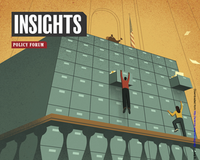
Luís A. Nunes Amaral
Professor of Engineering Sciences and Applied Mathematics
Professor of Medicine (by courtesy)
Professor of Molecular Biosciences (by courtesy)
Professor of Physics & Astronomy (by courtesy)
Engineering Sciences and Applied Mathematics
2145 Sheridan Road (Room M426)
Evanston, IL 60208, US
Phone:
+1 847-491-7850

How to build a more open justice system
Science 369, 134-136 (2020)
Abstract
Modern governments gather information across an extraordinary range of activities and use this information to direct policy. Whether a central bank monitoring inflation or a health agency monitoring disease, these entities typically publicly disclose the information gathered so that their actions can be reviewed and evaluated by others. But in many respects, the justice system is a glaring exception. In the United States, a range of technical and financial obstacles blocks large-scale access to public court records—all but foreclosing their use to direct policy. Yet a growing body of empirical legal research demonstrates that systematic analyses of court records could improve legal practice and the administration of justice. And although much of the legal community resists quantitative approaches to law, we believe that even the skeptics will be receptive to quantitative feedback—so long as it is straightforward, apolitical, and incontrovertible. We offer an example of this kind of feedback as well as a collaborative research agenda to dismantle access barriers to court records and enable the public to analyze them.